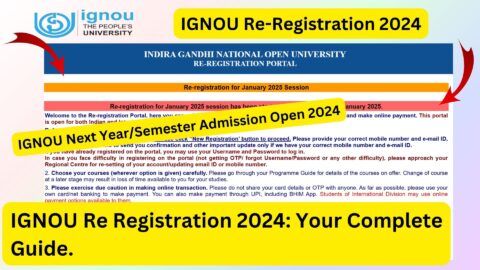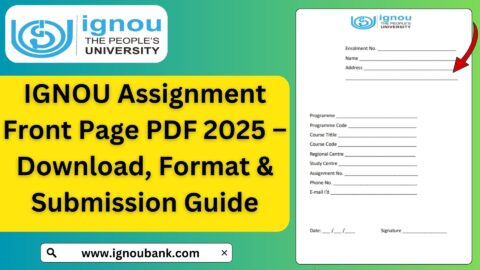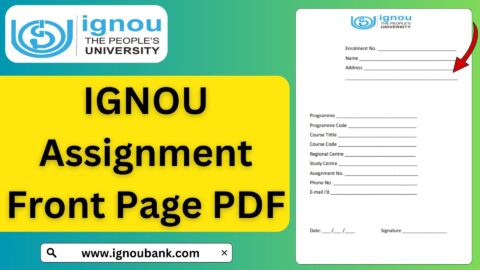How to Consolidate Student Loans, Are you feeling overwhelmed by multiple student loan payments, each with different interest rates and due dates?
Consolidating your student loans might be the solution you need to simplify your finances and potentially save money in the long run.
Whether you’re a recent graduate or have been out of school for a while, understanding how to consolidate your student loans is a valuable financial skill.
You May Also Like: How can you reduce your total Loan Cost 2024: 5 Effective Strategies
In this guide, we’ll walk you through the process step by step, so you can take control of your debt and achieve greater financial stability.
Understanding Loan Consolidation
Consolidating student loans involves combining multiple loans into a single loan with one monthly payment.
This can make managing your debt more convenient and may even result in a lower interest rate, ultimately saving you money over time.
However, it’s essential to understand that consolidation may not be the best option for everyone, so it’s crucial to weigh the pros and cons before making a decision.
Assess Your Loan Situation
Before diving into the consolidation process, take some time to assess your current loan situation. Gather information about all of your existing student loans, including their interest rates, repayment terms, and monthly payments.
Understanding the details of each loan will help you determine whether consolidation is the right choice for you.
Research Your Consolidation Options
There are several options available for consolidating student loans, including federal consolidation loans, private consolidation loans, and refinancing. Federal consolidation loans, offered through the U.S.
Department of Education, allows you to combine federal student loans into a single loan with a fixed interest rate.
Private consolidation loans, offered by banks and credit unions, can be used to consolidate both federal and private student loans but may have variable interest rates and repayment terms.
Refinancing involves taking out a new loan with a private lender to pay off your existing student loans. This option may allow you to secure a lower interest rate or adjust your repayment terms, but it’s essential to consider the potential loss of federal loan benefits, such as income-driven repayment plans and loan forgiveness programs.
Compare Interest Rates and Terms
When evaluating consolidation options, be sure to compare interest rates, repayment terms, and any fees associated with each loan.
Look for a loan with a competitive interest rate and flexible repayment options that align with your financial goals. Keep in mind that while a lower interest rate can save you money on interest over time, extending your repayment term may increase the total amount you pay.
Apply for Consolidation
Once you’ve chosen the consolidation option that’s right for you, it’s time to apply for the loan. The application process will vary depending on the type of consolidation you select.
Federal consolidation loans can be applied for online through the Federal Student Aid website, while private consolidation loans and refinancing typically require submitting an application directly to the lender.
Stay on Top of Payments
After consolidating your student loans, it’s crucial to stay on top of your payments to avoid defaulting on your loan.
Set up automatic payments if possible, and be sure to notify your loan servicer if you experience any changes in your financial situation that may affect your ability to make payments.
By staying proactive and organized, you can successfully manage your consolidated loan and work towards becoming debt-free.
Advantages of Consolidate Student Loans
Consolidating student loans offers several advantages that can make managing your debt more convenient and potentially save you money in the long run. Here are some key benefits:
- Simplified Repayment: One of the most significant advantages of consolidating student loans is that it combines multiple loans into a single loan, resulting in just one monthly payment. This simplifies your financial life by reducing the number of bills you have to keep track of and making it easier to manage your payments.
- Fixed Interest Rate: If you consolidate federal student loans through a federal Direct Consolidation Loan, you’ll have the option to lock in a fixed interest rate. This can provide stability and predictability to your monthly payments, as your interest rate won’t fluctuate over time.
- Extended Repayment Terms: Consolidation may also offer the opportunity to extend your repayment term, resulting in lower monthly payments. While this can mean paying more in interest over the life of the loan, it can provide temporary relief if you’re struggling to make your current payments.
- Access to Income-Driven Repayment Plans: Consolidating federal student loans can make you eligible for income-driven repayment plans, such as Income-Based Repayment (IBR), Pay As You Earn (PAYE), or Revised Pay As You Earn (REPAYE). These plans cap your monthly payments at a percentage of your discretionary income and offer forgiveness of any remaining balance after a certain number of years of qualifying payments.
- Streamlined Loan Servicing: With multiple student loans, you may have to deal with different loan servicers, each with its own website, payment system, and customer service process. Consolidating your loans means you’ll have just one loan servicer to deal with, making it easier to get answers to your questions and resolve any issues that arise.
- Potential for Lower Interest Rate: If you have high-interest private student loans, consolidating them through refinancing with a private lender could potentially lower your interest rate. This can result in significant savings over the life of the loan, especially if you have a strong credit history and can qualify for a lower rate.
- Improve Credit Score: Consolidating your student loans can also have a positive impact on your credit score. By reducing the number of accounts you have and making on-time payments, you can demonstrate responsible borrowing behavior, which can help boost your credit score over time.
Overall, consolidating student loans can provide a range of benefits, from simplifying repayment to potentially saving you money on interest. However, it’s essential to carefully weigh the pros and cons and explore all of your options before deciding whether consolidation is right for you.
Disadvantages of Consolidate Student Loans
While consolidating student loans offers several advantages, it’s essential to consider the potential disadvantages before making a decision. Here are some drawbacks to consolidating student loans:
- Loss of Borrower Benefits: Consolidating federal student loans may result in the loss of certain borrower benefits, such as interest rate discounts, principal rebates, or loan cancellation benefits that were associated with the original loans. Additionally, if you consolidate federal loans with a private lender through refinancing, you may lose access to federal repayment plans and forgiveness programs.
- Potential Increase in Total Interest Paid: While consolidating can lower your monthly payments by extending the repayment term, it may also result in paying more interest over the life of the loan. This is especially true if you consolidate federal loans with a longer repayment term, as you’ll have more time for interest to accrue.
- Loss of Grace Period: If you consolidate your loans while still in the grace period after leaving school, you may lose the remaining grace period. This means your payments could become due sooner than if you hadn’t consolidated.
- Potential for Higher Interest Rate with Private Refinancing: If you consolidate federal loans with a private lender through refinancing, you may end up with a higher interest rate, especially if you don’t have a strong credit history. Private lenders typically offer variable interest rates, which can increase over time and result in higher overall costs.
- Ineligibility for Loan Forgiveness: If you consolidate federal student loans with a private lender through refinancing, you may become ineligible for federal loan forgiveness programs, such as Public Service Loan Forgiveness (PSLF) or Teacher Loan Forgiveness. These programs require specific types of federal loans and repayment plans, which may no longer apply after refinancing.
- Limited Repayment Options: Private consolidation loans and refinancing often have fewer repayment options compared to federal loans. This can make it more challenging to adjust your payments if your financial situation changes or if you experience hardship.
- Potential Loss of Federal Protections: Federal student loans offer certain borrower protections, such as deferment, forbearance, and income-driven repayment plans. Consolidating federal loans with a private lender through refinancing means forfeiting these protections and becoming subject to the terms and conditions of the private lender.
Before consolidating your student loans, carefully consider these disadvantages and weigh them against the potential benefits. It’s essential to research your options thoroughly and understand the terms and conditions of any consolidation loan or refinancing offer before making a decision.
FAQ for How to Consolidate Student Loans?
What is loan consolidation?
Loan consolidation is the process of combining multiple student loans into a single loan with one monthly payment. This can simplify repayment and potentially lower monthly payments by extending the repayment term.
How do I know if I should consolidate my student loans?
You may want to consider consolidation if you have multiple student loans with varying interest rates and repayment terms, and you find it challenging to manage multiple monthly payments. Additionally, consolidation may be beneficial if you’re seeking a lower monthly payment through an extended repayment term or if you’re interested in qualifying for loan forgiveness programs.
What types of loans can be consolidated?
Most federal student loans, including Direct Subsidized Loans, Direct Unsubsidized Loans, and PLUS Loans, can be consolidated. Private student loans can also sometimes be consolidated, but the process and eligibility requirements may vary depending on the lender.
Are there any downsides to consolidating student loans?
While consolidation can simplify repayment, it may not always result in lower overall payments. Extending the repayment term through consolidation can lead to paying more in interest over time. Additionally, consolidating federal loans into a private consolidation loan may result in the loss of certain borrower benefits, such as income-driven repayment plans and loan forgiveness options.
How do I consolidate my student loans?
To consolidate federal student loans, you can apply for a Direct Consolidation Loan through the U.S. Department of Education’s Federal Student Aid website. The application process is typically straightforward and can be completed online. For private student loans, you’ll need to contact your lender or loan servicer to inquire about consolidation options and requirements.
Can I consolidate my loans if I’m still in school?
Generally, you cannot consolidate your student loans while you’re still enrolled in school. However, you may be able to consolidate your loans once you graduate, leave school, or drop below half-time enrollment.
Will consolidating my student loans affect my credit score?
Consolidating your student loans typically does not have a significant impact on your credit score. However, if you apply for a new loan or line of credit to consolidate your loans, the credit inquiry and new account may temporarily lower your score. Additionally, closing old accounts as part of the consolidation process could affect your credit utilization ratio, which may also impact your score.
Are there any fees associated with loan consolidation?
There are no fees to consolidate federal student loans through a Direct Consolidation Loan. However, if you choose to consolidate private student loans through a private lender, there may be origination fees or other associated costs. It’s essential to carefully review the terms and conditions of any consolidation offer to understand any potential fees or expenses.
Conclusion
Consolidating your student loans can be a smart financial move that simplifies your debt and potentially saves you money on interest.
By understanding your loan options, comparing interest rates and terms, and staying proactive with your payments, you can take control of your finances and achieve greater financial stability.
If you’re feeling overwhelmed by student loan debt, consolidation may be the solution you’ve been looking for. Take the first step today towards a brighter financial future.











